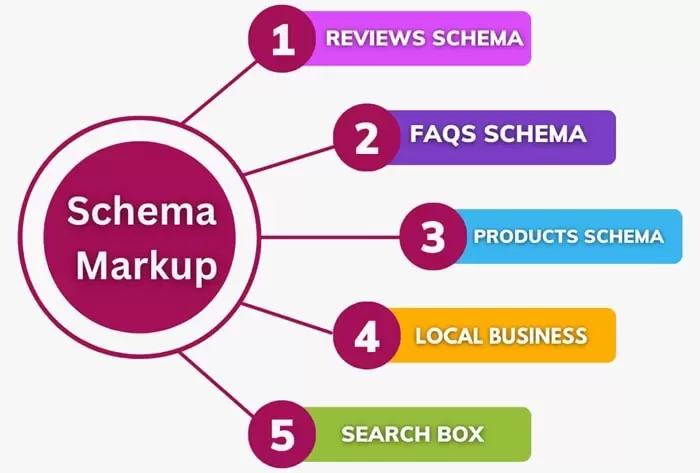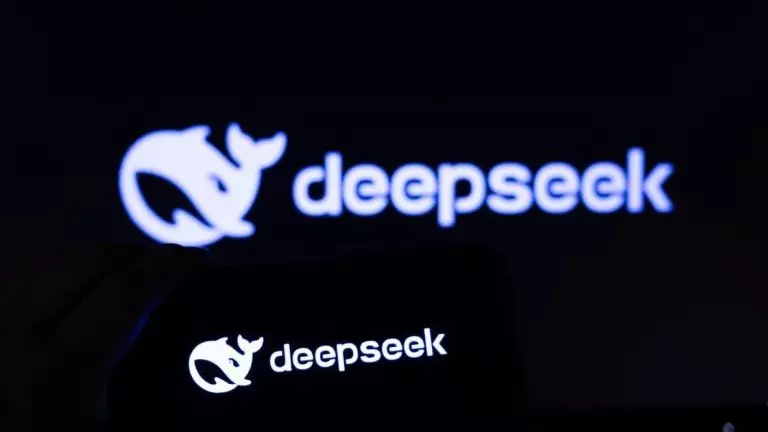In this article, we explore how schema markup, specifically using descriptive markup, linking entities, and integrating with external data sources, can foster trust with Google and potentially mitigate the risk of being deindexed.
Furthermore, we will examine the significance of schema markup in enhancing the probability of participation in Search Generative Experience (SGE) and elevating information gain scores. These aspects are important for achieving visibility in conversational search settings.

The Advantages of Schema Markup for both Google and Website
With the exponential growth of spam and the looming integration of Generative AI in SERPs, Google confronts escalating costs. The implementation of Search Generative Experience (SGE) entails significantly higher expenses compared to current methods, potentially affecting ad revenue as searcher queries are quickly addressed, thereby reducing placement opportunities.
One strategy to mitigate costs involves adopting a stricter policy regarding content inclusion in Google’s index. Anecdotally, clients with intricate business models relying on template pages have observed more frequent instances of deindexing, even for pages with longstanding stability.
In certain scenarios, JavaScript emerges as the culprit. Nevertheless, Google has already devised strategies to address sites with extensive injection. Google can identify these pages, prioritize them in the render queue, and crawl them subsequent to data injection.
Google Integrated Forums and Profiles Using New Structured Data
So, why isn’t this happening? Could this be another area where Google is struggling to efficiently manage resources amidst the increasing volume of spam? For website owners and SEO professionals, being deindexed is a nightmare—it’s like being completely sidelined from the game.
The solution is simple: schema markup. Beyond just helping search engines comprehend content more effectively, it can also offer significant cost savings for Google. Schema markup assists Google’s crawlers and machine learning algorithms in comprehending web content more efficiently and economically.
By aiding Google in minimizing the resources required for crawling, indexing, and understanding your site, schema markup can contribute to reducing Google’s operational costs, ultimately leading to enhanced visibility.
Fostering Trust Through Schema Markup
By implementing thorough schema markup, leveraging @id to interconnect entities, and associating these entities with external data via sameAs, trust can be established while reducing the data exchange costs between a business and Google.
- Detailed Schema Markup: Using detailed and accurate schema markup that avoids deception helps Google in cutting down on Natural Language Processing (NLP) expenses. This is achieved by precisely defining the entities and their interrelationships on the page.
- Interlinking Entities: Through the use of @id, entities can be interconnected, thereby enhancing the depiction of their relationships.
- Connecting to External Data: By using sameAs, external data can be linked to entities on a webpage, augmenting the descriptive nature of the entity and substantiating its authenticity.
While there’s abundant information on creating detailed schema markup and interlinking entities, the focus on connecting data from external sources seems to be lacking.
How to Increase SERP visibility through Structured Data and Schema Validation
The utilization of sameAs goes beyond merely linking social media profiles to an organization’s schema; it’s important for establishing connections to external data. Consequently, many SEOs have begun linking to knowledge bases such as Wikidata and Google’s Knowledge Graph.
In today’s SERP landscape, fostering trust is imperative and serves as one of the most simple methods to demonstrate legitimacy and avoid being flagged as spam. Leveraging the sameAs property to link entities to reputable and verified data sources is instrumental in achieving this.
When considering organizations with intricate business structures, opportunities abound for SEOs to establish legitimacy and gain trust. Resources such as the Better Business Bureau, City Chambers Business Directories, and EIN numbers are just a few examples.
Ultimately, the objective is to reduce ambiguity, allowing Google to readily verify and trust your content. In the age of generative AI, trust hinges on verifiable information. If Google cannot verify it, trust cannot be established, thus undermining our efforts to reduce costs.
Implementing schema for potential inclusion in Search Generative Experience (SGE) entails navigating the challenges posed by the vast expanse of information on the web, despite the significant advancements in Natural Language Processing (NLP), particularly with the integration of Large Language Models (LLMs).
The provision of structured data by businesses to Google enhances the pool of verified information available for effectively training machine learning algorithms like LLMs. The quest to enhance chances of inclusion in SGE remains a prominent topic. However, from my perspective, visibility will surge as more data from a specific source becomes part of the training dataset.
Ultimately, merely aiding Google in understanding information isn’t sufficient.
To illustrate, consider compiling a library in your home with limited space. Would you purchase the same book repeatedly just because you stumbled upon another copy? Certainly not, and I believe Google shares a similar sentiment.
To secure inclusion in Search Generative Experience (SGE), offering something novel, even if it’s just a new perspective, is imperative. This leads us to the concept of information gain, which Google uses to enhance user experience across various searches, promoting the discovery of new insights with each query.
In SGE, where conversational search fosters a multi-search environment, an elevated information gain score can significantly elevate the likelihood of your content being integrated into SGE results. This is due to reduced competition for inclusion in Google’s machine learning algorithms.
Integrating original, distinctive content with schema markup seamlessly aligns with Google’s objective of efficiently deploying SGE, aiming for a neutral or positive revenue impact while trimming operational costs.
Would you like to read more about “How To Use Schema Markup To Foster Trust And Enhance Information Gain” related articles? If so, we invite you to take a look at our other tech topics before you leave!
Use our Internet marketing service to help you rank on the first page of SERP.
![]()











